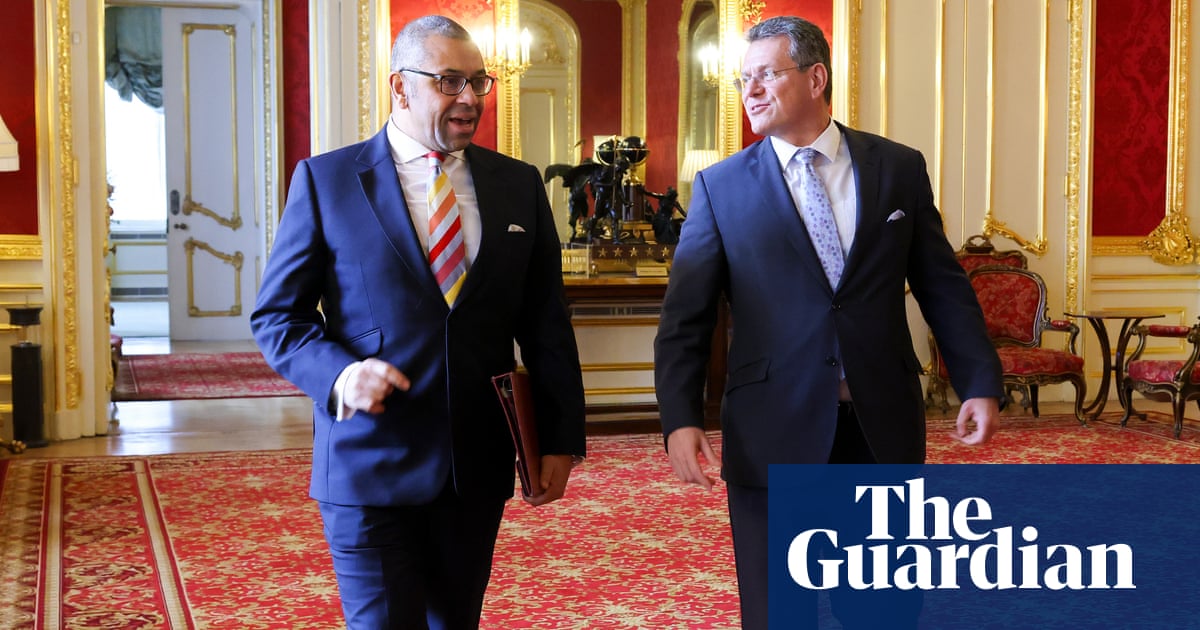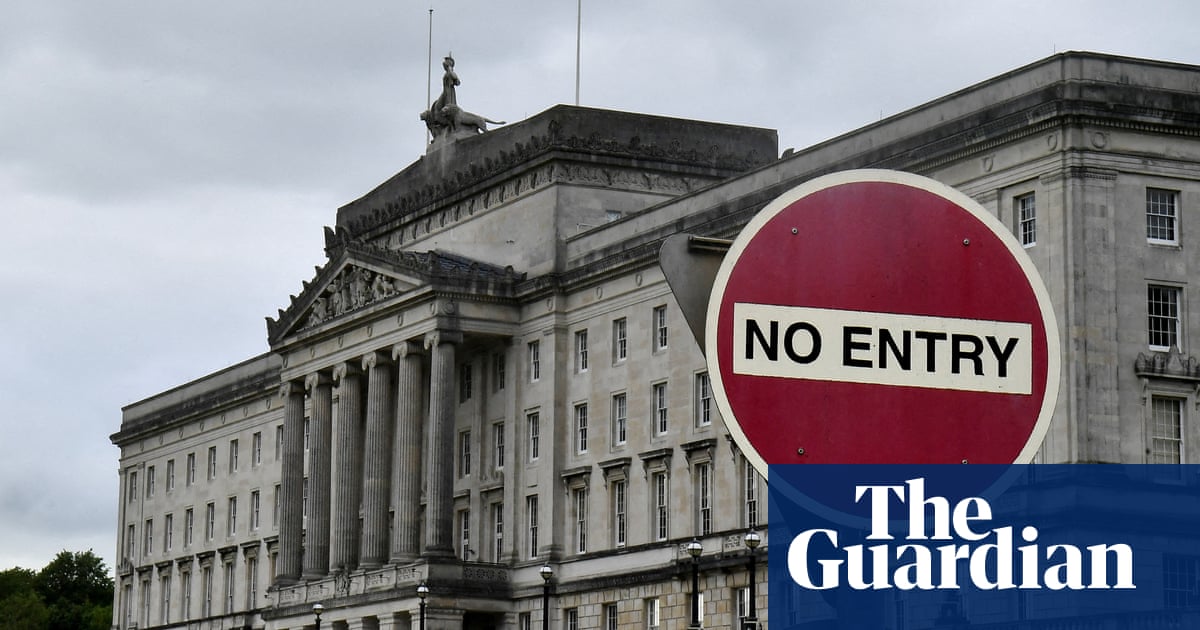
Elections for the Northern Ireland Stormont assembly could be delayed until next April to give talks between the UK and the EU on the controversial Brexit trade arrangements a chance, the government has announced.
The Northern Ireland secretary, Chris Heaton-Harris, said he would introduce legislation to delay the date he needs to call an election by six weeks, with a further six-week delay if needed.
He was legally bound to have called elections on 28 October but under the new law can delay the trigger date until 19 January, meaning the latest an election can happen is 13 April.
It comes as the EU is finally given access by HMRC to live data recording exact cargo destinations entering Northern Ireland from Great Britain, data which could provide the case for eliminating nearly all the controversial checks on goods crossing the Irish Sea.
Heaton-Harris told the Commons in a statement he would be tabling an emergency law to facilitate Brexit talks for up to three months.
He also said he would be looking at reducing the pay “appropriately” of members of the legislative assembly.
“I will be introducing legislation to provide a short, straightforward extension to the period for executive formation – extending the current period by six weeks to 8 December, with the potential of a further six-week extension to 19 January if necessary.
“This aims to create the time and space needed for talks between the UK government and the EU Commission to develop and for the Northern Ireland parties to work together to restore the devolved institutions as soon as possible.”
He raised concerns about a £660m “black hole” in public finances in Northern Ireland and health service waiting lists with 187,000 people waiting for more than a year for outpatient services.
Ireland’s foreign minister, Simon Coveney, welcomed the delay and called on the UK to use the time to “engage positively, and with real urgency” in the knowledge that the EU had “listened carefully” to the concerns of unionists over the protocol.
Talks between the foreign secretary, James Cleverly, and the European Commission vice-president Maroš Šefčovič have been ongoing since September but sources say they are not yet at the “tunnel” stage where creative solutions can be teased out with a view to a settlement.
Access to the HMRC data could provide a breakthrough on the issue of physical checks on agrifood and other goods but not on the issue of the role of the European court of justice.
It is understood Brussels, which has been seeking access since Brexit happened, had previously been offered data but with a 40-minute time lag, enough time for goods to cross the border into the Republic of Ireland and the single market.
Earlier this week, Šefčovič told a group of 70 cross-party MPs and peers at a special Brexit convention in Westminster that “both our respective positions are not worlds apart”.
He said the UK was looking for check-free “green lanes” for goods remaining in Northern Ireland and the EU had offered “express lanes”.
“The issue boils down to [whether there are] no checks or minimum checks,” he said, adding that he believed checks could be reduced to one or two lorries a day.
Šefčovič was speaking at the second meeting of the EU-UK parliamentary partnership assembly, an institute set up under the Brexit trade deal.
It is understood that both sides are also making headway on biosecurity protections with discussions centring on a potential emergency brake mechanism, which would allow for the temporary suspension of a particular good such as fruit or poultry in the event of a disease outbreak.
Heaton-Harris also faced questions on the strengthening of relations with the Republic of Ireland, which had been undermined by the row over the protocol.
Earlier in the Commons, the government faced calls by the DUP MP Sammy Wilson to remove the protocol altogether because of the second major issue for unionists, the requirement to observe EU law on trade and the role of the European court of justice in the event of dispute.
The Northern Ireland minister said he believed there was a negotiated outcome that would work for all sides.
Heaton-Harris later tried to reassure other DUP MPs, saying: “There are principal positions that I completely understand that have been articulated by the unionist community and online with its reference to issues with the protocol and to fix those.”












